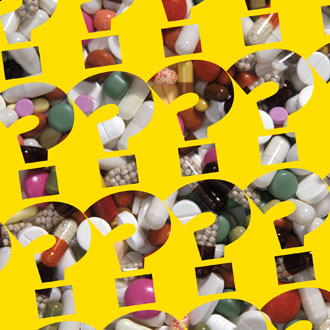GPs need patients to say ‘STOP’ to overmedicalisation

The RCGP Annual Conference closed with a debate called ‘My Doctor Makes Me Sick’, raising the serious question of whether we overmedicalise our patients.
Chair of the College, Dr Maureen Baker, challenged us to come up with solutions that might reverse the increase of overdiagnosis and overtreatment that make it nigh on impossible to get to old age without having to sprinkle a handful of pills on your cornflakes every morning.
A list of half a dozen ideas was gathered from suggestions from the conference floor before our chair asked the floor to decide which idea would get the chance to describe their suggestion for a minue.
Much to my surprise, my idea came out on top, and my 60 seconds at the microphone were distilled into this: we need to empower patients to say ‘STOP’.
This really is a serious suggestion. The medical profession is slowly waking up to the dangers of overmedicalisation and we need patients to find their voice if we are to fully rouse ourselves.
This will be no small task. The patient voice is a powerful one, and doesn’t need doctors to prop it up, but usually it arises from a personal story connected to a single disease entity.
If a patient is affected by an unusual cancer, or a rare metabolic disease, and is energised to raise awareness of the condition, then support groups rise up and patients are empowered with doctors barely even knowing about it.
The trouble with overdiagnosis is, most people who are overdiagnosed don’t even know it, and nor do their doctors. Of the 43 men treated for screen-detected prostate cancer, for instance, only one will benefit – the other 42 have been over-diagnosed. But they will all believe they are that ‘one’. How could you put yourself through treatment if you didn’t think it would benefit you?
The issues around overdiagnosis are complex. Doctors can easily be misunderstood as seeking to deny people care. Patients who opt out of treatment or screening are seen as taking a risk rather than evaluating which risk they would rather have – the risk to treat against the risk not to, and the risk to screen against the risk to avoid screening.
We need a patient voice – a pressure group, if you like – that will demand that doctors give them informed consent before paternalistically expecting them to agree to treatment. We need a national presence that stands up for patients who want less medicine, not more. We need patient advocates that won’t rest until screening leaflets are accurate and empower informed choice rather than seek to raise uptake rates for the sake of government statistics. We need an articulate voice that will engage in the media and the tabloid press, and has a thick skin – because if you get involved in this there are people who will think you are mad, bad, or both, and won’t be afraid to tell you so.
What was clear from the conference is that there will be strong support from many grassroots GPs for any patients brave enough to do this. We are fed up of overtreating them and making them ill with too many pills that they don’t want and probably won’t benefit from.
The trouble is, we don’t know how to stop, and we need their help.
Dr Martin Brunet is a GP in Guildford and programme director of the Guildford GPVTS. You can tweet him @DocMartin68.



 Oviva’s fully remote Tier 3 Weight Management programme
Oviva’s fully remote Tier 3 Weight Management programme





